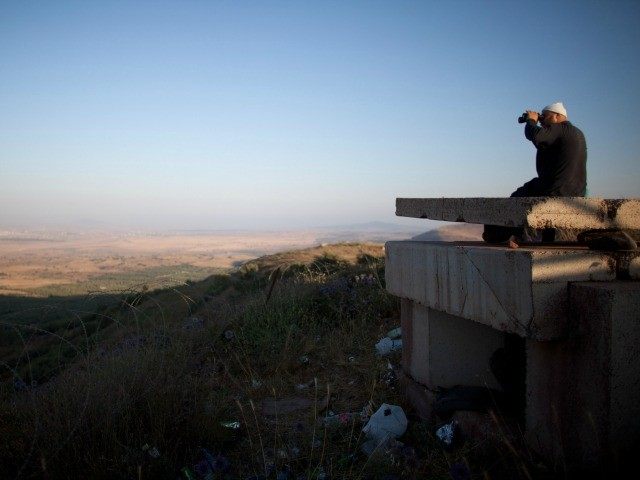TEL AVIV – The Israeli Air Force killed the members of a terrorist cell affiliated with the Islamic State in southern Syria in the first direct clash between Israel and the radical group Sunday morning.
Shots and a mortar shell were fired across the border at an IDF patrol on the Israeli side of the Golan Heights from the IS-affiliated Shuhada al-Yarmouk (Yarmouk Martyrs Brigade), according to an IDF statement.
The soldiers returned fire until an IAF aircraft struck an armed vehicle, killing four terrorists inside.
There were no reports of injury to the Israeli soldiers.
Maj.-Gen. (ret.) Amos Yadlin, former head of IDF Intelligence, said that the incident “was not a Daesh-style [Islamic State] planned attack” in which vehicles are typically loaded with explosives and suicide bombers.
For that reason, Yadlin said, it is unlikely that the attack was anything more than a spur-of-the-moment exchange of fire.
Yadlin added, however, that even though IS has been careful not to attack Israel until now – simply because the terror group already has enough enemies to contend with in Syria – Sunday morning’s attack may reflect a change in policy.
“If they did change policy, it will be because they want to have some propaganda achievement in the Arab world and [win a] little bit of sympathy for attacking Israel,” Yadlin, who currently serves as the Director of the Institute for National Security Studies (INSS), said.
“Maybe it’s a way to say, ‘Look we’re fighting Israel, come with us,’” he added.
Sources in Israeli intelligence have been concerned that the Yarmouk Martyrs Brigade will attack Israel with unconventional methods such as chemical weapons.
According to Yadlin, the moment Israeli intelligence knows for certain that the Islamic State in the Golan Heights “is using or preparing chemical weapons, no doubt preemptive Israeli action will be taken.”
“Israel can deal with this group of terrorists [but] decides not to do it [for now]. Israelis will do what they have to do.”
“We know how to deal with it,” he added.
Israel has made it clear that it holds the Syrian government responsible for any hostile activities coming from Syrian territory.
After Sunday’s clash, field workers and residents near the border were instructed to evacuate until calm was restored.
On November 9, a mortar landed in the Golan Heights from residual spillover of internal fighting between the Assad regime and rebel forces in the Syrian civil war. No injuries were reported.

COMMENTS
Please let us know if you're having issues with commenting.